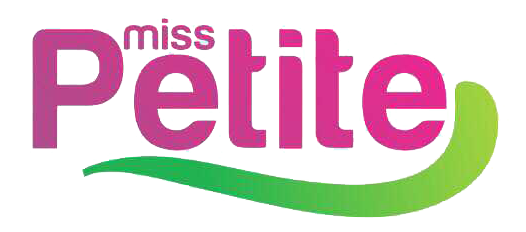This post contains everything you will ever need to know about the Nigeria-P&ID gas deal.
It’s a pretty long read but is well-formatted for easy reading.
The prelude
Sometime in 2006, two Irish businessmen, Michael Quinn and Brendan Cahill, founded Process and Industrial Developments Limited (P&ID).
The company is a sole purpose company set up to utilize Nigeria’s huge natural gas reserves.
On January 11, 2010, P&ID signed a Gas Supply and Processing Agreement (GSPA) with the Nigerian Ministry of Petroleum Resources.
The Ministry of Petroleum Resources was acting on behalf of the Umaru Musa Yar’Adua-led Nigerian Federal Government.
As per the agreement, P&ID will process natural gas from oil mining leases (OML) 67 and 123 to generate electricity for Nigeria while making some considerable profits for itself.
The license for OML 123 is held by Addax petroleum.
Addax petroleum is a subsidiary of Mirror Lake Oil and Gas Company Limited, which itself is a subsidiary of the Sinopec International Petroleum Exploration & Development Corporation (SIPC).
SIPC is a subsidiary of China Petroleum & Chemical Corporation (aka Sinopec Group).
Exxon Mobil holds the license for OML 67.
What exactly is P&ID?
We already mentioned that P&ID was founded by Brendan Cahill and Michael Quinn in 2006.
(Cahill is alive but Quinn is late. It seems he passed away on January 25, 2018.)
P&ID claims it is a United Kingdom company even though it is registered in The British Virgin Islands (BVI).
The British Virgin Islands is a British Overseas Territory (BOT).
BOTs are not part of the UK. They have their own independent governments but depend on the UK for defense and foreign affairs.
Why the British Virgin Islands?
The British Virgin Islands is an infamous tax haven.
Tax havens are countries or territories where multinationals register their businesses or subsidiaries to avoid paying taxes in their home countries.
Most businesses registered in tax havens only exist on paper.
These businesses — called shell companies — often have billions of dollars in the bank accounts registered in the name of the company even though they do not have physical offices or employees.
The British Virgin Islands does not slam these companies with any taxes and only requires them to pay an annual license fee.
Who sets up a shell company?
Practically anyone; from the clean to the dirty.
Corrupt politicians set up shell companies to hide stolen wealth.
Criminal organizations set up shell companies to launder and hide their proceeds from crime.
Rich people set up shell companies to hide their money from their significant other in case of a bitter divorce.
Rich people and multinationals companies set up shell companies to:
• Avoid paying taxes in their home country.
• Hide patents.
• Mask their country of origin.
• Allow them operate in countries where they might not be allowed to.
• Protect them from lawsuits in their country or the country where they operate.
There are several other reasons but these are the most common.
Is P&ID a shell company?
Yes, P&ID is a shell company.
This is evidently clear because P&ID is registered in British Virgin Islands and does have a physical headquarters or even a website.
Its only website is pandidfacts.com, which is more of a blog than a website.
Everything on the website is all about the failed Nigerian natural gas project.
And what sort of multinational adds “facts” at the end of their top level domain?
P&ID has no social media presence either.
It is not on Facebook and only joined Twitter in April 2019. So far, it has 83 tweets and 17 followers.
The tweets are all about the failed Nigerian gas deal while the followers are Nigerian and Irish journalists and newspapers.
We think P&ID set up office in the British Virgin Islands to hide its taxes from the British government.
The deal
Details of the January 11, 2010, Gas Supply and Processing Agreement indicates that P&ID will use its money to build a natural gas processing plant in Adiabo, Cross River state, Nigeria.
The Nigerian government will in turn build some required infrastructure including pipelines to transport natural gas to and from P&ID’s processing plant.
The Nigerian government will also negotiate with the OML license holders, NNPC, its subsidiaries and other government agencies to ensure the smooth flow of the project.
(It is important to note that Umaru Musa Yar’Adua was president at this point.)
Who signed the deal with P&ID?
While the details of the deal remains sketchy, it probably wasn’t Yar’Adua or Jonathan — who were president and vice-president at the time the deal was signed on January 11, 2010.
Wait a minute? What do you mean?
Yar’Adua was flown to Saudi Arabia on November 23, 2009, over a terrible case of pericarditis.
(Pericarditis is the inflammation of the fibrous sac surrounding the heart.)
There are indications that he was unconscious or gravely ill to perform any presidential duties at that point, so was unable to officially hand over to Jonathan.
Yar’Adua was still receiving treatment in Saudi Arabia at the time the P&ID deal was signed on January 11, 2010.
Most people believe he was unconscious at the time and there were rumors that he was dead.
However, Yar’Adua granted BBC Hausa a very brief radio interview on January 12, the day after the deal was signed.
The interview had nothing to do with the deal. Yar’Adua just wanted to prove to Nigerians that he was alive.
We also need to understand that:
1. The BBC crew never saw Yar’Adua in person. They spoke over the telephone.
2. The interview was only aired on radio.
3. The BBC added that some Nigerian listeners doubted that Yar’Adua was really the one talking.
That said, there is no evidence that Yar’Adua signed the deal while on his sick bed in Saudi Arabia.
Maybe it was Jonathan
We believe Jonathan did not sign the deal because he was still a vice-president and not acting president as at January 11, 2010.
Jonathan was not the acting president because Yar’Adua never officially handed over to him, so he lacked full presidential powers to oversee that sort of deal.
Of note is that the National Assembly refused to declare Jonathan acting president even when it became obvious that Yar’Adua was gravely ill.
This was for petty political reasons.
The late Madam Dora Akunyili even got caught in the crossfire when she suggested that the Nigerian House of Assembly declared Jonathan acting president.
More…
And…
Jonathan only became acting president when the Nigerian senate intervened on February 10, 2010 — a full month after the deal was signed.
The Senate only intervened over concerns that the military might exploit the loophole to take over the government.
What about the Minister of Petroleum Resources?
Rilwan Lukman was the minister of petroleum resources at the time.
Unfortunately, he died with his side of the story on July 21, 2014.
Who could have signed the deal?
A powerful cabal in Aso Rock could have signed the deal or tricked the unconscious Yar’Adua into signing it.
Madam Dora Akunyili famously complained about the cabal holding Nigeria to ransom.
Obviously, all the cabal needed to say was “The president said…” Everything else becomes irrelevant at that point.
Records from the day also indicate that the cabal sidelined and isolated Jonathan throughout the period Yar’Adua was on his sickbed.
Members of the cabal even flew important documents that required the president’s attention to Yar’Adua in Saudi Arabia instead of sending them over to Jonathan.
This is even though Yar’Adua was gravely ill and probably in coma.
Yar’Adua returned to Nigeria in the night of February 24, 2010 and remained in coma until his death on May 5.
Who were the cabal?
The cabal consisted of people closest to President Yar’Adua.
The leader was his wife, Turai Yar’Adua — a power-hungry woman desperate to keep Yar’Adua in power at all costs.
She infamously shielded the sick and dying Yar’Adua from everyone including his own mother and sister.
There are rumors that she once said “(my) husband would rather die in office than be ex president”
Turai would have covered up Yar’Adua’s death and claimed he was still alive if she had his way.
Working closely with Turai was Yusuf Tilde, President Yar’Adua’s Chief of Staff, who was the second-in-command of the cabal.
With Tilde was Colonel Mustapha Onovieda, Yar’Adua’s Aide De Camp (ADC).
These two men prevented top government officials outside the cabal from seeing Yar’Adua.
We mean everyone including vice-president Goodluck Jonathan.
There was many other people but these three are the most important.
The Buhari government should get them arrested, so they can tell us what they know.
Back to the P&ID deal, what was in for Nigeria?
As per the agreement, the natural gas leaving OMLs 67 and 123 will be given to P&ID for free.
P&ID will process that gas to power massive turbines plants that will generate around 2,000 megawatts of electricity for Nigerians.
Nigeria will generate active income from selling the electricity to its citizens and passive income from the infrastructure and industries the electricity will power.
It is also noteworthy to know that the Nigerian government will receive the dry gas free of charge as part of the deal.
What was in for P&ID?
P&ID is no charity and is definitely not building the gas processing plant for free, even though Cahill likes to make us think he was doing us a favor.
(We will get back to this shortly.)
Before we delve into this part, we will need to understand why the natural gas from Exxon Mobil and Addax needed to be processed.
Natural gas exists as either dry gas or wet gas.
Dry gas is also called non-associated gas while wet gas is called associated gas.
Dry gas is primarily methane, which is used to power turbines to generate electricity.
Wet gas is 85% methane (dry gas) with 15% additive gases like butane, propane and ethane.
Butane and propane are our regular cooking gas while ethane is used in making plastics, anti-freeze and detergents.
These additives need to be extracted to turn wet gas into dry gas.
The gas from Exxon Mobil, Addax and most oil fields in Nigeria plant is of the wet variety.
Like most other OML holders in Nigeria, Exxon Mobil and Addax flare this gas because they do not want to invest into processing it.
(Flaring means they just added fire and burned it off into the atmosphere.)
Like this:
So what was in for P&ID?
P&ID saw money and electricity where the Nigerian government and OML holders saw waste.
P&ID’s gas agreement with Nigeria states that the dry gas will be given to the Nigerian government for free while the additive gases will be sold by P&ID.
P&ID hoped to make between $6–9 billion in profits from the sales of the additive gases.
How much will Nigeria receive from the $6–9 billion profits?
Nothing!
The agreement clarifies that Nigeria will only receive the processed dry gas for its turbines.
P&ID gets all the money.
Wait! What? Isn’t that cheating?
No, P&ID was not cheating Nigeria.
P&ID was clear about its intention of making some decent profit from start.
It was also getting involved in developing some crucial infrastructure for Nigeria.
That’s business.
But P&ID will own the gas processing plant forever
No. It will not.
The deal is actually a build–operate–transfer (BOT) even though P&ID likes to make us think it was doing us a favor.
The BOT deal was to last for 20 years before P&ID transfers the processing plant to the Nigerian government.
The Nigerian government will start selling the extracted ethane, butane and propane while still generating electricity with the processed dry gas.
The deal sounds good then
Sure it does!
2,000 megawatts is around half of what Nigeria currently generates, so it’s quite a lot.
Nigerians would have been enjoying improved electricity if the government had kept to its own end of the deal.
Unfortunately, Nigeria is cursed with bad leaders who only care about their pockets.
So the deal just fell through.
What went wrong? Give us the juicy details
The deal between Nigeria and P&ID went sour sometime between 2010 and 2012.
While details remain sketchy, either side is pointing fingers at the other like two 8-year-olds caught fighting on the playground.
P&ID accused Nigeria of not building the pipelines while Nigeria accused P&ID of not building the processing plant.
Why did P&ID not build the plant?
P&ID said it did not build the processing plant because
1. The Nigerian government refused to provide crucial technical details that would allow them proceed with the project.
2. The Nigerian government was becoming sneaky and trying to strike an agreement with another company to process the gas.
P&ID says it was still negotiating with the Cross River state government for land to build the processing plant at the time the deal fell out.
Why did Nigeria not lay the pipeline and install the turbines?
The Nigerian government said P&ID did not build the processing plant.
You said something about Cahill making us think he was doing us a favor
Quinn and Cahill of P&ID went into assault mode the moment they realized the juicy deal with Nigeria will never happen.
They set up a website and started publishing articles indicating what Nigeria will lose while mostly keeping mum on what they would have gained.
These days, Cahill still makes it sound like the primary aim of the project was to generate electricity for Nigeria.
Like the deal was some sort of aid.
No Cahill, the deal was not an aid.
Its primary purpose was to make money for you and your partner while generating power for Nigeria at the same time.
And that is no problem because that is what business is all about.
CLICK HERE TO CONTINUE READING

Olalekan Ajimoti – Blogger, Content Writer, and Digital Marketer helping brands and retailers build 8-figure e-commerce since 2016.
As a corporate trainer, brand communications expert, and brand consultant, I help people start, stay and grow in business leveraging digital skills and traditional expertise.





